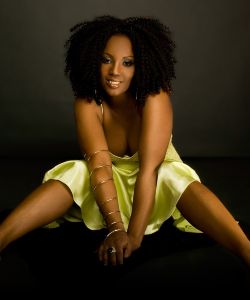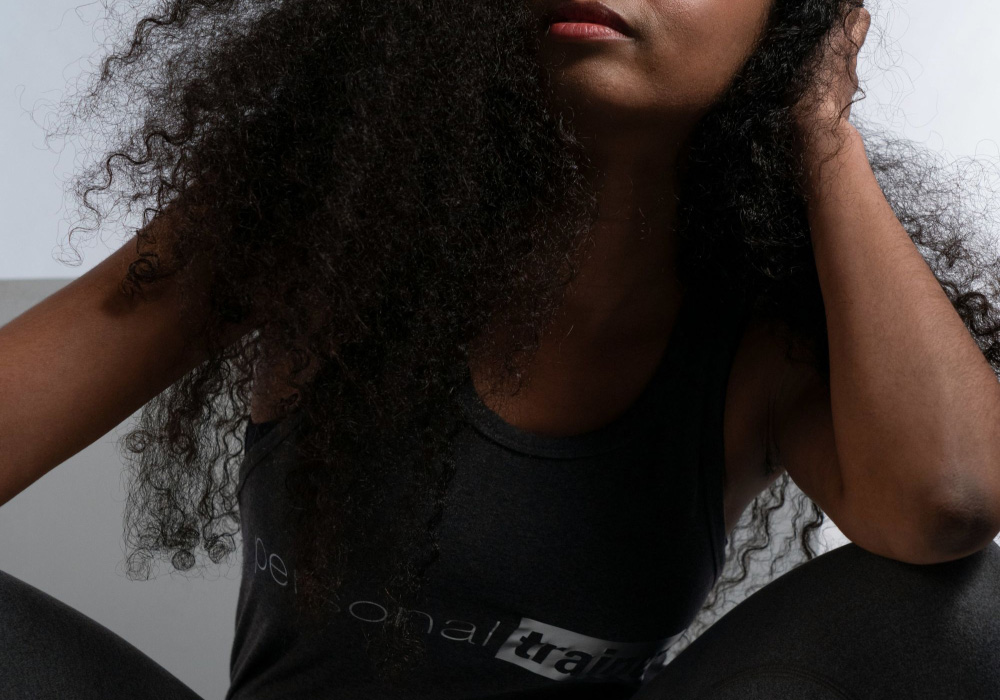An interview with Dione Taylor

It’s Valentine’s Day week once again. For many people, this is the time to reflect on the ghosts of love, past, present and future. Somehow, it’s quite fitting, on a personal level, to have recently met with Toronto-based, critically acclaimed Juno-nominated jazz and blues vocalist Dione Taylor. Unbeknownst to her, as she sat on this vintage sofa in my Old Toronto office speaking about her “love album,” my mind travelled three years back to an early fall Sunday night at College Street Bar in Toronto’s Little Italy. I was a regular there for Dione Taylor and her soul and funk band Soular’s amazing live weekly performances. That was the night I started seeing my last serious girlfriend -- as Dione Taylor was belting out a soulful rendition of my favourite singer of all time, Sade. One of those soundtracks of frozen moments in your life.
I still remember the unique touch that Taylor gave to the anthem “The Sweetest Taboo.” Although I have played this song on my vinyls and CDs countless times over the years, I still remember how Dione Taylor made me experience it in a whole new way. Now, I have the pleasure of rediscovering Dione Taylor through the spectrum of her first true love: jazz music.
While her sophomore album, I Love Being Here with You, is a strictly jazz album, the complexity of her soul, R&B and blues harmonies background is evident. Taylor certainly doesn’t believe that music should be the prisoner of arbitrary boundaries. As she puts it: “Why should an artist be forced to just do one style of music? It seems very limiting to me.” This boundless love affair with music is reflected in a wonderful way in her new album.
For instance, she shares her soul-searching experience of spending two weeks a year ago with one of her album’s producers, the legendary Doug Riley, at his home in Prince Edward Island. “I spent two weeks over there with him and just relaxing, listening to the music of old Doug Riley recordings, old Dr. Music (Riley’s band) recordings, and it was really nice to find out the history of him and also to bring that history into my music. Like for example [the track on I Love Being Here with You], “He’s Funny That Way”. That tune was actually recorded by Dr. Music – which was his group over thirty years ago.” Taylor immediately knew that she wanted to record it, and Doug Riley was more than happy to see that song find its way, through a new incarnation, in I Love Being Here with You. “That’s what I mean, it’s like blending the past into the future” says Dione Taylor.
As Taylor sifted, along with Riley, through over two hundred songs that people had brought to them and also songs that she had written herself, other classic songs (older and more contemporary) found renewed life in her new album. In particular, Prince’s Nothing Compares to You. “It’s a song that I have always loved. I love Sinead O’Connor’s version. I love Prince’s version,” says Taylor. Her bluesy rendition of this song is truly beautiful and original. As I admitted to her, it’s already on my iPod.
Shedding light on her philosophy of covering classics, Dione Taylor explains: “If I’m going to do a song that everyone knows already, I want to do it in a way that people are surprised. And I want to make it my own. And it’s funny because when people first hear the song, they’re like, “I know this song, I know it.” And then they can’t figure it out until the chorus. Then they’re like, “Oh, right!” … So then I’m like, “Yes!!” I want to shock people, I want people to be taken aback a little bit.”
Dione Taylor has indeed been pushing the boundaries since a very young age. She started piano lessons when she was four years old. Growing up as a preacher’s kid in Regina, Saskatchewan, the church was a potent and fertile ground for her burgeoning talent. As Taylor recalls: “I just always remember being at church and always being around music. Always being at choir practice. Music was so important in our family and in the church especially. … There isn’t another place where you can go to (unless it’s like a club or bar -- but when you’re a kid …) where you can go and sing at the top of your lungs and sort of discover your voice. So what was really cool about church is that you could just go and just sing and just free yourself. It was something that I always looked forward to. To sing in church.”
Later inspired by the likes of Sarah Vaughan and Ella Fitzgerald, Dione Taylor kept nurturing her love for jazz music. Back in Regina, she listened to a lot of radio and discovered wonderful players like Don Thompson and Brian Dickinson. Realizing that they lived in Toronto and also taught at Humber College, she made the decision, in 1996, to move to the big city. Taking us back to those days, Dione Taylor remembers: “Well, I had just finished school at university, and I wanted to find myself … like everyone does at that age. I wanted to go to the big city. I wanted to experience life in a different way. It’s weird. I love Regina, and I loved growing up there, but I knew there was a bigger bowl. And I wanted to be more around people who looked like me and who didn’t look like me. Different cultures. And it’s something that I really really wanted to explore.”
Soon after graduating from Humber College, Dione Taylor released her first album, Open Your Eyes in May of 2004. Looking at the road she’s travelled so far, Taylor says:
“I think this album, I Love Being Here with You, is a lot more bluesy. When I recorded my first album, I was right out of school, about a year after I graduated from Humber and very tired. I was in a very different headspace then. It’s such an intense program musically. And I think I was just kind of overwhelmed. … I’m so proud of that album because I got to record it so fresh out of school and got to work with some amazing players. But this album, I Love Being Here with You, has been around for a couple of years. So I’ve had some time to sort of relax, meet other singers and songwriters in the city, and collaborate with them. That was really cool because it sort of put me in a different focus, a different headspace. A little more bluesy, a little more soulful. I think that’s the main difference between the two albums. I mean, it’s still jazz, obviously. But I think it’s a little more on the bluesy side.”
“All the songs have to do with love. Whether it’s love for another person, love for yourself, love for a friend. It’s my love album.”




